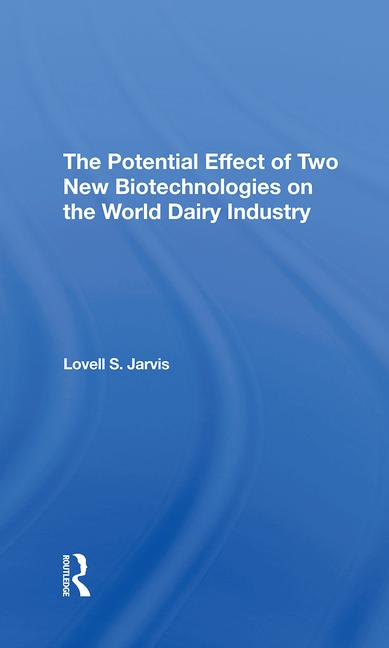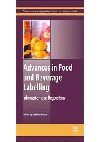
“A nutritious smoothie can be hard to find and even harder to make,” says Kevin Sobieski, Yoplait marketing. “With 110 calories per serving and a simple ‘just add milk and blend’ prep, Yoplait Frozen Fruit and Yogurt Smoothies take out the worry and the work. You get a fast, delicious smoothie you’ll feel great about drinking.”
A good source of calcium, each Yoplait smoothie contains a full serving of fruit as well as real Yoplait yogurt pieces with live and active cultures. Yoplait smoothies are also an excellent source of the antioxidant vitamin C.
“Sales of yogurt and smoothie products have been a shining star for the dairy category in recent years,” says Paul Rovey, Arizona dairy producer and chair of Dairy Management Inc. (DMI), Rosemont, Ill., which manages the national dairy checkoff. “Checkoff-funded dairy ingredient marketing efforts work with key food and beverage manufacturers to assist in the development of new products that drive volume by highlighting the nutrition, functionality, versatility and good taste of dairy ingredients.”
Consumer research indicates that once consumers try the smoothies, they become regular customers. The smoothies will result in an estimated 120 million pounds of additional milk volume used each year, according to DMI.


Organic Valley, La Farge, Wis., a farmer-owned cooperative of more than 1,300 organic family farmers nationwide, is introducing 32-ounce bottles of low-fat yogurt this January to select retailers nationwide. The yogurt comes in three flavors - berry, plain and vanilla - and has a suggested retail price of $3.99. The berry and vanilla flavors are sweetened with agave nectar, and the vanilla is Fair Trade vanilla. Each serving contains two grams of organic inulin, a prebiotic fiber obtained from Jerusalem artichoke.
The yogurt is formulated to ensure that through the end of product code, each serving contains at least 10 billion living cells of the company’s proprietary mix of three probiotic cultures - Lactobacillus acidophilus, Bifidus BB-12 and Lactobacillus casei - in addition to the live and active yogurt cultures Streptococcus thermophilus and Lactobacillus bulgaricus.
“In creating our yogurt, our farmers wanted consumers to expand how they think about and incorporate calcium-rich yogurt into their daily routines - think ‘Pour It, Drink It, Blend It,’” says Tripp Hughes, director of category management. “The bottled yogurt is ideal as an ingredient in delicious recipes (such as salad dressings, smoothies or dips), mixed with granola for breakfast or enjoyed straight from the bottle. No matter the preference, we hope people will find even more tasty ways to incorporate each smooth and creamy flavor as part of a healthy diet.”

At only 40 calories per serving, the juice cocktails contain two-thirds fewer calories than 100% juices, with a third fewer carbohydrates and natural sugars. The drinks are sweetened with a stevia-based sweetener.
Apple Rush Co., Dolton, Ill., has developed a reduced-calorie version of its Organic Apple Rush beverages. The company plans an early 2010 introduction of three new organic light varieties: Black Cherry, Original Apple and Pomegranate. The product will be available in eye-catching 12-ounce recyclable aluminum cans.
The light varieties are made with 60% organic juices and sweetened with a blend of stevia and erythritol, which reduces calories by 40%. Apple Rush is positioning itself for the growth it foresees in the reduced-calorie organic beverage category. School districts and other on-premise foodservice locations like hospitals and physical fitness centers are seeking beverages that contain less than 100 calories per serving. Apple Rush claims that its reduced-calorie version will not only be well within this spectrum, based on the standard 8-ounce serving size, but less than 100 calories for the entire 12-ounce can.
“We’ve been reviewing alternative sweeteners for some time but could not find any one new, naturally reduced-calorie sweetener that on its own could produce both sufficient calorie reduction and the refreshing taste we were looking for, until now,” says Robert Corr, president. “We see this as a great inroad to a new customer base that has been kept on the Apple Rush sidelines only because of the calorie issue.”
PepsiCo Inc., Purchase, N.Y., now markets stevia-sweetened Aquafina Plus Vitamins 10 Cal beverages, which come in three new and unique varieties: Acai Fruit Punch, Black and Blue Berry, and Tropical Cherimoya.


The product was the brainchild of Greg and Ilsa Toepfer, who struggled to get their two young daughters to eat “BRAT” foods to help with nausea. The Toepfers wished for a liquid version of the diet, and when they found none existed, set out to formulate a product themselves. The resulting Organic B.R.A.T. was launched in March 2009 and is produced without lactose, gluten or common allergens, and contains no added sugar. It is sweetened only with banana and apple puree.
Organic B.R.A.T. comes in four flavors: Chocolate-Honey, Cinnamon-Toast, Original and Vanilla, and is available in more than 4,000 retail outlets nationwide and online through Amazon.com.




